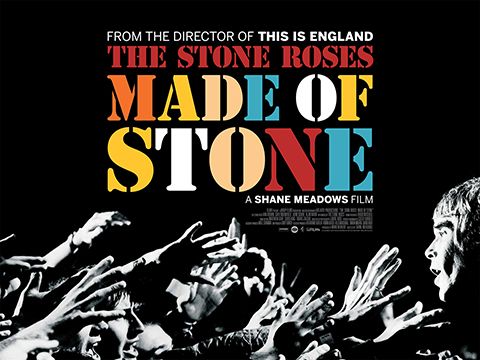It’s hard to describe what it was like being young in the mid to late 80s, but the divisive cultural poison unleashed by the recent death of Margaret Thatcher gives you some idea. Britain was a divided place and the London media world of city traders in red braces and garish striped shirts noisily embracing Thatcher’s ‘Big bang’ bore no relation to the desolation and hopelessness of youth unemployment in bleak northern towns. The sphere of music and culture was similarly divided between the day-glo, shiny, synthetic pop of Michael Jackson and Madonna and the doomy, lyrical seriousness of New Order, The Cure and The Smiths. To ally yourself to the latter in a town like Birkenhead where I grew up was to take yourself very seriously; to feel ever so superior as you pored over Morrissey‘s lyrics for their devastating wit and cultural critique and to cement your status as an outsider. Basically, it was a serious business that required a lot of time and energy. This was the world into which The Stone Roses exploded in the late 1980s, ushering in a colourful era that was unselfconscious in its joyfulness, and equally contemptuous of doomy introspection. To many like me it felt like the arrival of a sunny day after a harsh and bleak winter. The generation that fell in love with the Roses are as much the subject of Shane Meadows‘ film as the band themselves, and it stands as a testament to their undying devotion.
Directed by Shane Meadows, the creator of the This is England series and film, Made of Stone makes no attempt at a journalistic critique of the band, or any attempt at digging the dirt on their problematic relationships. Meadows is a classic member of ‘the Roses’ generation’ and he unapologetically describes the film as “a love letter to The Stone Roses“. The opening sequence is breathtakingly cinematic: a drawn-out, slowed down, black and white shot of Ian Brown embracing the crowd at the Roses’ huge Heaton Park reunions last summer. The music has been removed and replaced with audio of Alfred Hitchcock musing on the nature of creativity and sensitivity. With the music removed, what remains is the pure love of the crowd for the singer whose voice has its limitations – he’s not some fame-hungry X-Factor contestant doing vocal gymnastics, he’s one of them singing songs that belong to them.
What we get is a combination of archive footage, crowd interviews, the rehearsals that led up to their reunion shows last summer and the ensuing live footage. This succeeds in telling the story of the band from its beginnings and reveals the still raw tensions that led to their acrimonious split. Even before the film starts its pre-showing at the Arts Picture House chain, there’s an intimation of that problematic relationship as drummer Reni fails to show up for the live feed that precedes the film; the official reason being given as “a heavy cold”. Footage of the band’s gigs and rehearsals further reveal the drummer’s pivotal role in the Roses’ success – not only the amazingly virtuoso beats but also the sweet vocal harmonies that augment Brown’s spirited whisper. It also reveals the manic presence and volatility that led him to be the first to leave the band in 1995. Meadows describes his realisation watching the Roses rehearse that they were like four legs of a table that couldn’t stand if one were taken away, and this is borne out by the fact that the band’s two virtuoso players, John Squire and Reni, were the two that failed to forge musical careers outside of The Stone Roses while Brown’s solo career flourished and Mani became a mainstay of Primal Scream.
There’s no attempt at analysis other than from the fans themselves, which is predictably uncritical. The only hint of the cynicism that greeted their reunion in some quarters is sounded at the initial press conference, where a Five live journalist manages to make the first question about Squire’s ‘I have no wish to desecrate the grave of Manchester pop group the Stone Roses’ artwork; however, the Roses are among friends and riding a wave of goodwill that swamps the question with guffaws at Ian Brown’s putdown of “You’re watching a live resurrection so watch it”.
The day of the free warm-up gig at Parr Hall in Warrington is given extensive coverage and it tells the story of jobs, children and lives abandoned in a mad rush to get to the venue in time to be admitted, of unconfined joy at getting in contrasted with the devastation of those left outside. Meadows skill at film-making realism is that he allows many of these people to tell their stories and elaborate upon what the band mean to them, and the result is a moving piece of social history. The unexpected star of the whole film is a particularly loquacious grey-haired but resolutely feather-cutted fan outside Parr Hall who summed up his devotion thus: “This is it. This is why I’ve still got me hair like this. This is why I’ve never worn a tie. This is why I still play that first album at least once a week”.
As the film draws to a close, Meadows allows the music to do the talking and what we get is ecstatic footage of Warrington and Heaton Park, the crowd singing along with every note. The usually ebullient Liam Gallagher sounds an uncharacteristic note of humility in Warrington by declaring the Roses “The best band to come out of Manchester ever” and in that moment you remember that Oasis were initially treated as little more than a Roses tribute act.
If you’re part of the cynical, on-line hatred that ran as a counter to all of this Roses devotion, then this film will only serve as another opportunity for more of the same. But for anyone who was there in the summer of 2012 and who’d lived it from the beginning, this film is a treasure trove of memories made with care and love for its subject. Whilst showing their brilliance, It doesn’t shy away from the flawed nature of the band, and also showcases Meadows’ trademark technique of combining gritty social realism with otherworldly fantasy sequences that are worthy of the musical sections of The Beatles Magical Mystery Tour. Whether the Roses have a creative future is open to question – new material is promised but threatened by those still-brittle relationships – but this film will always stand as a worthy tribute to The Stone Roses and their fans.




